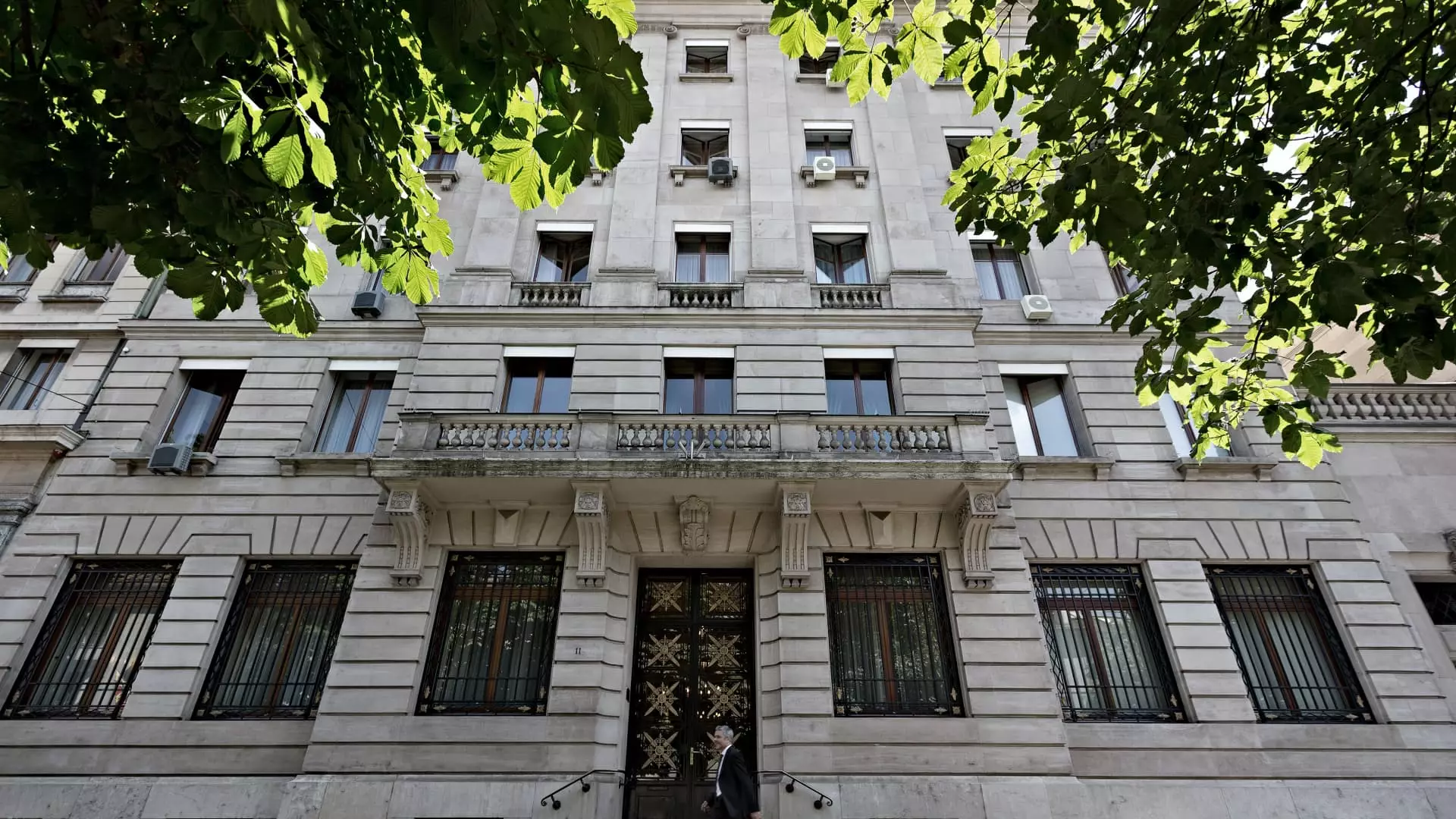In a significant legal development, Lombard Odier, one of Switzerland’s oldest private banks, faces serious allegations of aggravated money laundering as indicated by Swiss prosecutors. The Office of the Attorney General of Switzerland (OAG) has launched formal charges against the bank and a former employee, highlighting the grave implications for the institution, which has roots tracing back to 1796. The indictment serves as a stark reminder of the financial sector’s vulnerabilities and the mounting scrutiny under which Swiss banks operate, particularly regarding compliance with anti-money laundering regulations.
The crux of the allegations revolves around the alleged assistance provided by Lombard Odier to conceal the proceeds of a criminal organization overseen by Gulnara Karimova, the daughter of the late Uzbek president, Islam Karimov. The OAG’s findings suggest that between 2005 and 2012, substantial sums connected to Karimova’s illicit activities found their way into the bank’s accounts in Geneva. The indictment follows an extensive investigation that has been ongoing since 2016, shedding light on the troubling nexus between high-profile figures and financial institutions, particularly in cases where political and economic corruption intersect.
While facing these serious allegations, Lombard Odier has vehemently denied any wrongdoing. In a statement released shortly after the announcement of the indictment, the bank described the charges as “unfounded and without merit.” They emphasized their position on proactively reporting any suspicions to the authorities, which implies they may argue that they were not complicit but rather unwittingly involved. The bank’s commitment to a vigorous defense underscores not only its interests but also the broader implications for public trust in the banking sector.
The repercussions of this indictment could be profound, impacting Lombard Odier’s reputation and the broader Swiss banking landscape. Historically viewed as a robust banking environment with a strong commitment to confidentiality, Switzerland now faces increasing pressure to enhance transparency and compliance with international norms. The case against Lombard Odier will likely reignite debates about the effectiveness of existing regulatory frameworks to prevent money laundering and uphold ethical practices in finance.
Karimova, who awaits significant legal battles of her own, serves as a symbol of the intersection of politics and finance, where personal wealth can often mask deeper criminal activities. She is currently imprisoned in Uzbekistan, a situation that adds complexity to the investigation. As financial authorities escalate their crackdown on money laundering, one question remains pertinent: how many more institutions might face scrutiny in a world keenly watching for signs of accountability within the banking sector?
The Lombard Odier case illustrates the challenges faced by historical institutions in a modern landscape marked by sophisticated financial crimes and the urgent need for systemic reform within the banking sector to rebuild trust and integrity.

